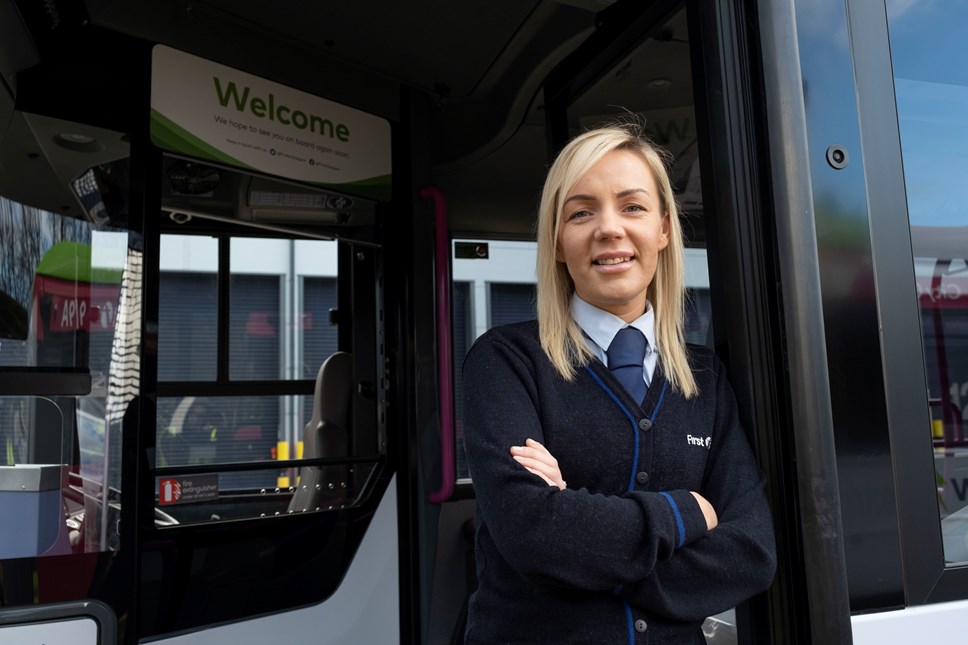Members from the supplier side of the industry discussed the impact that tech developments are having on operations, vehicles and on customers during a panel discussion at the CPT Annual Conference on 31 March
Members from the supplier side of the industry have warned operators to keep on top of security and training when it comes to technology – because without investment, companies risk being left behind.
TruTac Managing Director Jemma James kicked off the CPT Annual Conference technology panel session on 31 March by highlighting the many challenges with adopting new technology. They include barriers around investment, deployment and the risks of being an early adopter.
While she says operators should not be scared about new technology, operators should “understand the risks”, especially if that technology is unproven. Those risks can be mitigated by training and security procedures. She highlighted especially the appeal of unproven technology to cyber criminals. Equally, she warns that not investing in technology presents the risk of falling behind changing times.
Ms James points to artificial intelligence (AI) as a good example of the need to assess risks, invest in training and to make sure systems are secure. While AI removes repetitive and manual procedures, it should also be regulated, managed and controlled to mitigate recent risks from cyber criminals.
Development speeding up
Richard Blackburn-Hughes, Ticketer Chief Commercial Officer, used ChatGPT to demonstrate the power of AI to give information on industry matters – saying he was “pretty scared” at the quality of its responses. But he says that ChatGPT demonstrates some of the power and opportunity of technology – and that the amount of change that has seen in the last 20 years makes Ticketer “very optimistic” about the next 20 years. He says the technology can be harnessed to reduce friction for coach and bus travel.
Gustavo Marqueta, International Business Development Director at Mellor and Treka Bus parent Woodall Nicholson, presented the view from the vehicle manufacturer’s perspective. He also highlighted that technology over the last 20 years has been based on partnerships.
He pointed to technological developments in vehicles such as self-driving systems, which he says have a clear future in last mile applications. He offered a prediction of 10-15 years before the wider roll-out of autonomous technology, but presented the UK government statement that the industry will provide a £42bn economy in the UK with 38,000 skilled jobs by that time.
Technology will also continue to play a role in safety and predictive technology within vehicles and is already in use in collision avoidance and lane departure systems as standard across models. Investment will also continue in battery technology.
Collaboration is crucial
Ensuring that technology suppliers work alongside each other is “critical” according to Mr Blackburn Hughes, in order to foster collaboration and standardisation across the market. “With the drive towards multi operator ticketing there are operators using different ticketing systems – that needs to be joined up to have an effective multi-operator ticketing experience,” he says, “such as making sure we can read our competitors’ barcodes and they can read ours. We’ve been making lots of investments around APRs to allow that. Another example is around demand-responsive transport (DRT) and making sure operators can interact with DRT services.”
Ms James described the need to share data is “absolutely imperative.” Using disparate systems that do not communicate is “an outdated approach”. TruTac points to its APIs with over 40 different partners from tacking to telemetry to tyre manufacturers. “We understand the need to have collaborative data – not have data in different systems.”
The panel further suggested that AI will have a fast impact and will rapidly finds itself applicable to more and more applications. But that a negative impact of the rapid rollout of this technology may result in some operators being left behind when it comes to investment – not all companies will be in the position to make those investments. Mr Marqueta says that is where institutions need to support some technology, such as self-driving systems. But Ms James warns that operators are already at risk of being behind if they have not made investments into digital systems for compliance.



























